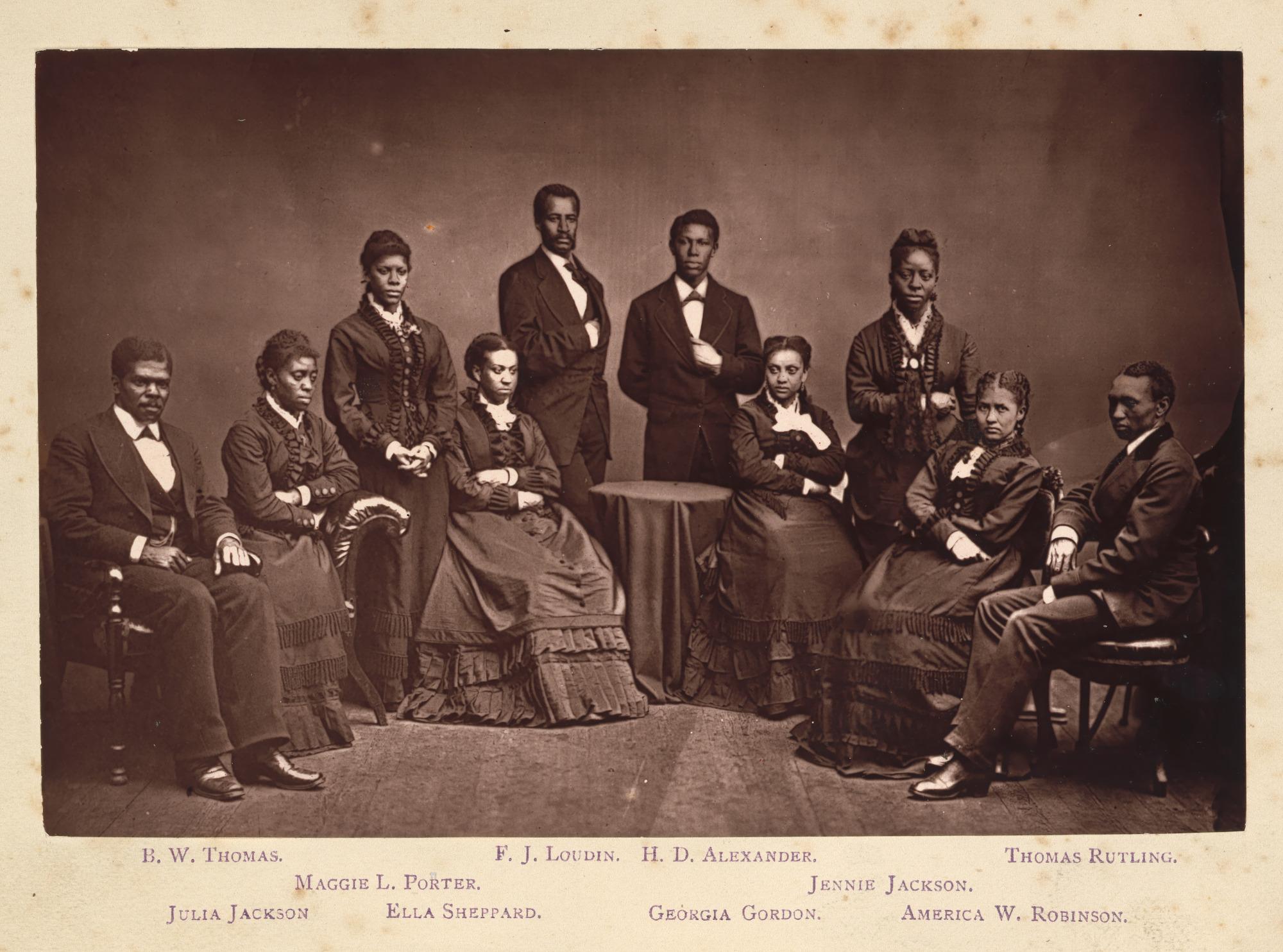
...many enslaved Africans adopted biblical figures not only as heroes, but as ancestors, to replace the African ancestors from whom they had been torn. -M. Roger Holland, II
If you want some understanding of how the enslaved African community lived, struggled, and even hoped, turn to their spirituals. Scholars describe them as historical documents, and many of the lyrics speak of heartache and despair.
There ain't no freedom here, Lord
I wish I never was born
Lord, How Come Me Here?
But this month, M. Roger Holland, II shows us a song that does a 180 from the sorrow songs we examined during the first few months of Colorado Public Radio’s Journey to Freedom: The Spirituals Radio Project.
This month’s exudes empowerment: Ride On King Jesus.
-Monika Vischer, Program Director, CPR Classical
By M. Roger Holland, II
Everybody Needs a Hero.
A hero does the extraordinary, accomplishing more than ordinary people. They are idolized and admired for their accomplishments. Many aspire to be like them and achieve what they’ve achieved.
This dynamic existed for the enslaved African community, too, with heroes from the Bible, such as Moses, Daniel, Joshua, David, Samson, Jonah, and of course, Jesus. In their oppression, many enslaved Africans adopted biblical figures not only as heroes, but as ancestors, to replace the African ancestors from whom they had been torn. The enslaved embraced these heroes who faced adversity, and triumphed. Their stories of triumph became the triumphs of the enslaved African community.
“Ride On, King Jesus” recalls the vision of Jesus riding in the air on a white horse in Revelation, the final book of the Christian Bible. This kind of unique imagery is prevalent in Negro Spirituals. In the text of the spiritual as arranged by Hall Johnson, a major arranger of the concert spiritual, “King Jesus rides in the middle of the air” and “calls the saints from everywhere” to their eternal reward for a life well lived. The song tells of Jesus crossing the River Jordan, the same crossed by the Israelites into the Promised Land of the Old Testament. Jordan in spirituals symbolized freedom for the millions bound in slavery.
The story in Revelation also shows Jesus returning to conquer Satan, whom believers within the enslaved African community equated with their enemies. In the spirituals, Satan represented the overseer, the slave master, any who denied their humanity and opposed God’s will that they be free. A precursor of Jesus’ victorious ride is also found in the Gospels of the New Testament, when Jesus rode into Jerusalem and the people greeted him with shouts of “Hosanna,” a Greek word meaning “please, save us.”
Ride on King Jesus!
No man can hinder him
Ride on King Jesus!
No man can hinder him
Jesus rides on a milk white horse
No man can hinder him
The river Jordan he did cross
No man can hinder him…
After slavery offically ended in 1865, the song’s words became reminders of the struggle, but also hope for the future.
Yet to this day, we’ve seen how Black people have historically been cast as monolithic in this country. The actions of one, especially negative actions, are seen as the actions of the entire community. If one steals, all Black people are seen as thieves. If one person is unmotivated and performs poorly on the job, the entire race is deemed shiftless and lazy. If one person commits a crime, the entire Black race is cast as criminals by the media and white society (in general). I’m sorry to say, every time the country is faced with a mass shooting, we pray the shooter is not Black, realizing that the person’s heinous act will be cast upon the entire community.
Conversely, the Black community has raised up heroes of its own, whose successes are often also attributed to the entire community. Successes from the likes of boxers Muhammad Ali and Joe Lewis, Olympic runner Jesse Owens, baseball legend Jackie Robinson, activist and historian W.E.B. DuBois, entrepreneur and philanthropist Madame C. J. Walker, and mathematician Dorothy Vaughn, the subject of Hidden Figures (the 2016 film received an Oscar nomination for Best Picture).
These achievements are seen as triumphs of the Black community, within and without. Both the Black and white American communities saw these triumphs as attributed to the entire Black community, and therefore are reflections not only on the Black race, but on America as a whole.
Holland is Teaching Assistant Professor of African American Music and Theology at the University of Denver’s Lamont School of Music, and Director of DU’s Spirituals Project Choir.
Listen to Professor Holland’s monthly musical selections and commentary throughout the year on CPR Classical, including Sunday mornings on our choral music show Sing!, hosted by David Ginder.
February's Spiritual - “Lord, How Come Me Here?”
March's Spiritual - “He Never Said A Mumblin Word”
Hear CPR Classical by clicking “Listen Live” at the top on this website. You can also hear CPR Classical at 88.1 FM in Denver, at radio signals around Colorado, or ask your smart speaker to “Play CPR Classical.









